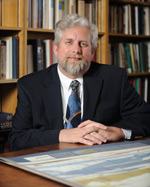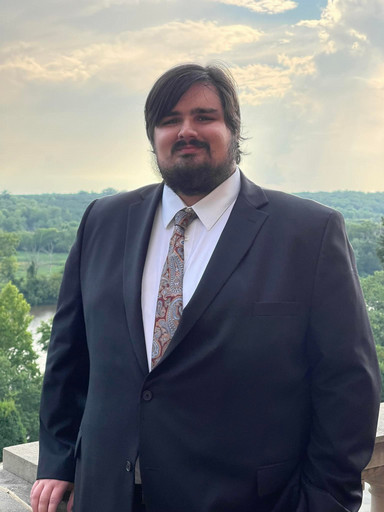Staff and Fellows
Meet the staff and fellows with the Center for Civil War Research.
- Home
- Departmental Directory
- Liberal Arts
- Center for Civil War Research
- Staff and Fellows
Staff
Director, April Holm and Associate Director, Robert Colby
April Holm
- Associate Professor of History
Robert Colby
- Assistant Professor of History
Founder and Director, 2009-2020
 John R. Neff
John R. Neff
John R. Neff created the Center for Civil War Research in 2009 and served as its director until his death in 2020. He joined the faculty at the University of Mississippi in 1999. With a research focus in Civil War memory, he was delighted to be invited to participate in the placing of a monument to the Eleventh Mississippi Infantry Regiment at Gettysburg National Military Park in 2000. His first book, Honoring the Civil War Dead: Commemoration and the Problem of Reconciliation , appeared in 2005 from the University Press of Kansas. That year, he was also named the College of Liberal Arts Teacher of the Year, and in 2009 he received the Elsie B. Hood Outstanding Teacher Award. At the time of his death, he was researching the legacy of the Civil War in Chicago, a project he had tentatively titled City of Memory.
Dr. Neff's research files on cemeteries, monuments, memorials, and reunions can be found on our eGrove repository.
McMinn Fellows
The McMinn Fellowship was inaugurated in 2010 in honor of William A. McMinn. He was a lifelong philanthropist with roots in Mississippi. A businessman and community leader with a diverse array of interests, Bill McMinn consistently championed the importance of education and history. His generous spirit has benefited universities across the South.
The McMinn Fellowship enables doctoral candidates at the University of Mississippi to advance their dissertation research and encourages new scholarship on the Civil War.
2025-2026 McMinn Fellow: Andrew Boldt
 PhD candidate Andrew Boldt holds the McMinn Fellowship for the 2025-2026 academic year. He is currently working on a dissertation focusing on Confederate military occupation of southern towns and communities. While writing his master's thesis on his hometown in Eastern North Carolina, Andrew noticed how the area spent most of the war under Confederate military occupation, and how the supposed 'home team' treated its own civilians and supporters. Mr Boldt's research is intended to examine an often overlooked part of the American Civil War, as military occupation is often framed by historians as a Union phenomena.
PhD candidate Andrew Boldt holds the McMinn Fellowship for the 2025-2026 academic year. He is currently working on a dissertation focusing on Confederate military occupation of southern towns and communities. While writing his master's thesis on his hometown in Eastern North Carolina, Andrew noticed how the area spent most of the war under Confederate military occupation, and how the supposed 'home team' treated its own civilians and supporters. Mr Boldt's research is intended to examine an often overlooked part of the American Civil War, as military occupation is often framed by historians as a Union phenomena.
Past McMinn Fellows
Matthew Lempke, 24-25
Joel Sturgeon, 23-24
Spencer King, 22-23
Jeffrey Glossner, 21-22
Sarah Elliott, 20-21
Beth Kruse, 19-20
Eli Baker, 18-19
Kristin Bouldin, 17-18
Nicholas Mosvick, 16-17
Thomas W. Robinson, 15-16
Christine A. Rizzi, 14-15
Boyd Harris, 13-14
Miller "Bill" Boyd, III, 11-12
Rachel Smith Purvis, 10-11

